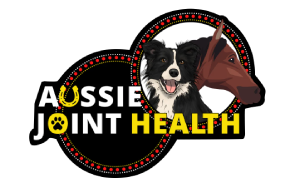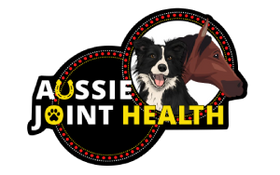What makes Equine Canine Joint Plus Supplements so special?
Equine and Canine Joint Plus supplements contain ingredients that may help treat arthritis, stiffness, and inflammation associated with joint conditions. This process has been made possible in collaboration with veterinarians, pet rehabilitation practitioners, and vet nutritionists.
Having treated horses and dogs with arthritis for over 20 years, Kurt has a wealth of equine and canine physical rehabilitation experience.
You will not find fillers, binders, or unnecessary additives in our products.
Our passion for horses and dogs translates into our commitment to providing the finest care for your pets.
The best practice is a priority for our company.
We provide a high standard of care for your horse or dog. Unlike so many companies, we don't treat your mate like a number. Your mate has a name, and age and may even have a story as to why our product is suitable for your mate. At Aussie Joint Health follow up with our customers and build a report with them so we can follow their journey with our products.
You can rest assured your mate is only receiving the finest because our product is manufactured in a GMP (Good Manufacturing Practices)-certified facility.
We understand how important your pet is to you.❤️
We have a lot to say about our ingredients!
Hyaluronic Acid.
As a part of the Gag family, hyaluronic acid combines with aggrecan ( In the proteoglycan family of chondroitin sulfate) that occurs naturally in the body's fluid, tissue, synovial fluid, and articular cartilage. Joint conditions like arthritis cause hyaluronic acid to break down and deteriorate naturally within the joints. Consequently, hyaluronidase is released into the body to attack the natural production of hyaluronic acid. In the therapeutic industry, hyaluronic acid is used for wound dressing, osteoarthritis medication, burn therapy, ophthalmic medicine, stomach ulcer treatments, and skin care treatment. The properties of hyaluronic acid include its ability to lubricate, and high viscoelasticity, which makes them useful for shock absorption, and support of joint composition.
Researchers at the Department of Connective Tissue Research use hyaluronic acid and cortisone injections as part of their case study (Ref 1) (Ref 2). This case study was to investigate cortisone injections used by themselves alone and with a cortisone injection and hyaluronic acid combined. This experiment involved twelve racehorses suffering from traumatic and degenerative arthritis between the ages of 3 and 10. The horses were grouped depending on the severity of their condition. According to the findings of this experiment, the horses treated with cortisone and hyaluronic acid showed excellent improvement compared to cortisone injection alone. A further study showed that hyaluronic acid injections achieved the same result when used alone for horses with traumatic arthritis. Due to the stress on the horses' joints during racing, racehorses may develop traumatic arthritis in the carpal, tarsal, fetlock, and coffin joints.
This case study (Ref 3) was to determine the effects of oral hyaluronic acid. Fifty-five dogs with Tibial Tuberosity advancement surgery and had been diagnosed with Cranial Cruciate ligament injury were administered oral hyaluronic acid. There were two groups of dogs: Group A(placebo) and Group B(HA). A ten-week follow-up was performed before and after surgery to measure the results. A significant finding supports that oral Hyaluronic acid administration to help manage osteoarthritis in dogs may be beneficial.
Veterinary practitioners have used hyaluronic acid for a decade to treat osteoarthritis in animals through injections. There is a disadvantage to intravenous injection of hyaluronic acid in that a professional is required. In addition, there is the possibility of infection at the injection site, and it is costly. Oral administration of hyaluronic acid provides a balanced level throughout the body, is easy to administer, and has no cost vet fees. It has been determined that daily consumption of oral hyaluronic acid can alleviate joint pain. Research has shown animals such as horses and dogs absorb it better when taken orally rather than injected.
Glucosamine
A well-studied joint supplement. The body naturally produces this amino molecule. The glucosamine compound is located in cartilage, the tough tissue that cushions joints. In addition to being one of the fundamental building blockers of cartilage, it also helps to protect the ends of bones, allowing them to move smoothly together. As the body ages, its natural production declines, but in supplement form, it can help support joints.
The use of glucosamine in this situation may be beneficial. In addition to balancing collagen and protecting proteoglycan synthesis in the cartilage, it scavenges free radicals and may have a mild anti-inflammatory effect. A review of scientific studies has shown that taking glucosamine can relieve symptoms of osteoarthritis pain caused by inflammation, breaks, and eventual cartilage loss.
Chondroitin
This substance is a glycosaminoglycan, chondroitin sulfate. Naturally found attached to proteins in the body. Normal levels of chondroitin in the body decline with age. Chondroitin plays a crucial structural role in cartilage. In addition to helping water retention, elasticity, and shock absorption for cartilage and joints, it has properties similar to glucosamine. In the body, chondroitin sulfate inhibits enzymes such as hyaluronidase, which breaks down hyaluronic acid naturally. By inhibiting hyaluronidase, chondroitin sulfate helps synovial cells increase hyaluronic acid levels. Overall, oral chondroitin sulfate is absorbed effectively into the body. Evidence is that it can help reduce pain, maintain joint mobility, and slow osteoarthritis progression.
MSM- Methylsulfonylmethane
MSM is a sulfur compound that blocks pain impulses from passing through nerve fibers. MSM is a natural anti-inflammatory and helpful in alleviating arthritis pain. It is a powerful antioxidant and contains other properties such as vitamin c, coenzymes Q10, all B-vitamins, vitamins A, D, and E, amino acids, selenium, calcium, magnesium, and many others.
Using twenty-four show jumping horses with exercise-induced injury, Maranon 2008 performed a case study (Ref 4). Horses were given MSM before and after the competition for six weeks. The demonstrated effects of MSM on the horses' oxidative and anti-inflammatory responses were positive.
Vitamin C- Ascorbic Acid
The most common vitamin supplement is Vitamin C. Due to its benefits in treating colds and infections. With developing horses, vitamin C plays a crucial role in collagen synthesis and repair. For horses under stress or in work, such as racehorses, endurance horses, and eventing horses, vitamin c can help with immune function and antioxidant properties. Adding Vitamin C to the daily diet may also benefit horses with diminished immunity, such as wounds, infections, arthritis, heaves, or allergies.
Veterinarians may recommend giving Vitamin C before and after Vaccination since Vitamin C is a natural immune booster. As a result of its collagen-based properties, it has been found to lessen the effects of joint disease, hip dysplasia, and spinal disorders. The natural Vitamin C that dogs produce can be low if the dog is sick or stressed, so adding Vitamin C to the daily diet can be beneficial.
Five key ingredients Equine Canine Joint Plus Supplements offers a premium joint supplement for horses and dogs.
In conjunction with Veterinarians, scientists, and animal nutritionists, we have calculated each molecule to complement one another and formulate a product that has exceeded all expectations.

Shop Now
References:
Frontiers in Veterinary science- Hyaluronic Acid: Molecular Mechanisms and Therapeutic Trajectory- Published June 25 2019
Equisearch- Oral Hyaluronic acid product- updated March 20, 2017, original published Sep 20 2008.
PubMed.gov-Oral Hyaluronan gel reduces post operative tarsocrural effusions in the yearling Thoroughbred.
Hyaluronic Acid in the synovial fluid- VI. Effects of Intra-Articular injection of Hyaluronic acid on the clinical symptoms of arthritis in track horse- written by Nils W. Rydell**), Judson Butler and Endre A. Balazs. Article from the department of connective tissue Research, Boston Biochemical Research institute, Boston, Massachusetts, USA.
J Vet Sci-Efficacy of an oral Hyaluronate and collagen supplement as a preventive treatment of elbow dysplasia. Published online 15 Dec 2014, Simon Marti-Angulo, Nuria Gracia-Lopez, Ana Diaz-Ramos
Efficacy of Orally Administered sodium hyaluronate gel in the racing thoroughbred. Rood and Riddle Equine Hospital. Scott W. Pierce, DVM MRCVS
WikipediA- Chondrocyte, WikipediA - Aggrecan, WikipediA- Methylsulfonylmethane, WikipediA- Absorbic Acid, WikipediA Hyaluronic Acid
PMC Labs- Effects of Glucosamine and chondroitin sulfate on cartilage Metabolism in OA: Outlook an Other Nutrient Partners Especially Omega-3 Fatty Acids. Published online Aug 2 2011
Glucosamine Chondroitin for Dogs: Benefits and side effects. Written by Dr Christopher Sherwin, PhD
PMC Labs- Glucosamine and chondroitin use in canines for osteoarthritis Angel Bhathal,1 Meredith Spryszak,2 Christopher Louizos,2 and Grace Frankel2,* Published online 2017



 7
7








